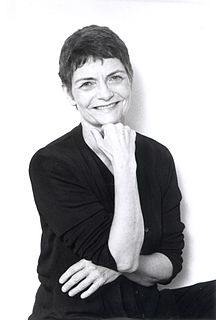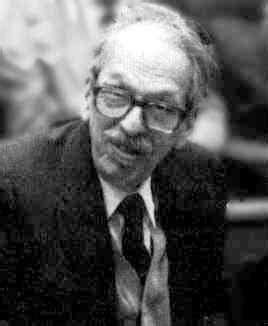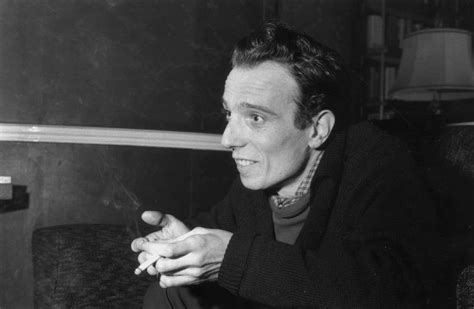A Quote by John Barton
An experienced reader uses the poem as an agent of inquiry. This makes poetry very exciting, unstable, and interactive.
Related Quotes
The poem is not, as someone put it, deflective of entry. But the real question is, 'What happens to the reader once he or she gets inside the poem?' That's the real question for me, is getting the reader into the poem and then taking the reader somewhere, because I think of poetry as a kind of form of travel writing.
Poetry and code - and mathematics - make us read differently from other forms of writing. Written poetry makes the silent reader read three kinds of pattern at once; code moves the reader from a static to an active, interactive and looped domain; while algebraic topology allows us to read qualitative forms and their transformations.
I want each poem to be ambiguous enough that its meaning can shift, depending on the reader's own frame of reference, and depending on the reader's mood. That's why negative capability matters; if the poet stops short of fully controlling each poem's meaning, the reader can make the poem his or her own.
Poetry is a river; many voices travel in it; poem after poem moves along in the exciting crests and falls of the river waves. None is timeless; each arrives in an historical context; almost everything, in the end, passes. But the desire to make a poem, and the world's willingness to receive it--indeed the world's need of it--these never pass.
One day while studying a Yeats poem I decided to write poetry the rest of my life. I recognized that a single short poem has room for history, music, psychology, religious thought, mood, occult speculation, character, and events of one's own life. I still feel surprised that such various substances can find shelter and nourishment in a poem. A poem in fact may be a sort of nourishing liquid, such as one uses to keep an amoeba alive. If prepared right, a poem can keep an image or a thought or insights on history or the psyche alive for years, as well as our desires and airy impulses.
You can publish a poem you think is a very important poem, and you don't hear a word from anyone. [...] You can publish a book of poetry by dropping it off a cliff and waiting to hear an echo. Quite often, you'll never hear a thing. So doing that, using older work, puts it in a context, and that sort of forces the reader to realize what its importance is-if it has any. Everything needs a context. You're not going to recognize a poet unless you have a context.
That's one of those questions that would just love to have a pat answer. You know, poetry's job is to make us feel good. Poetry exists to allow us to express our innermost feelings. There isn't one role for poetry in society. There are many roles for poetry. I wrote a poem to seduce my wife. I wrote a poem when I asked her to marry me. Poetry got me laid. Poetry got me married.






































